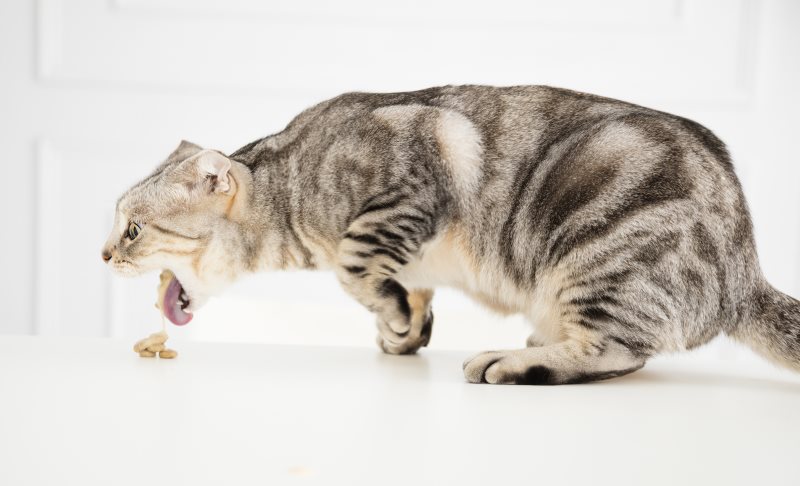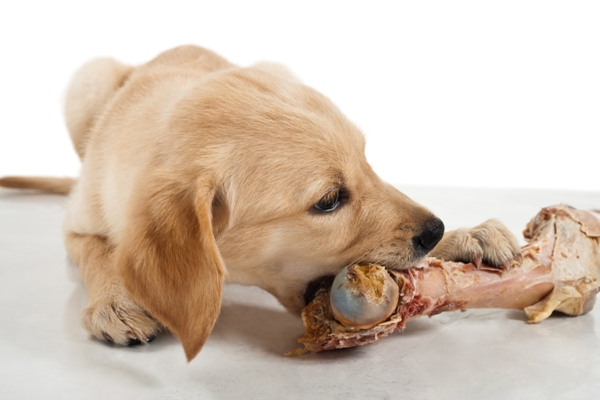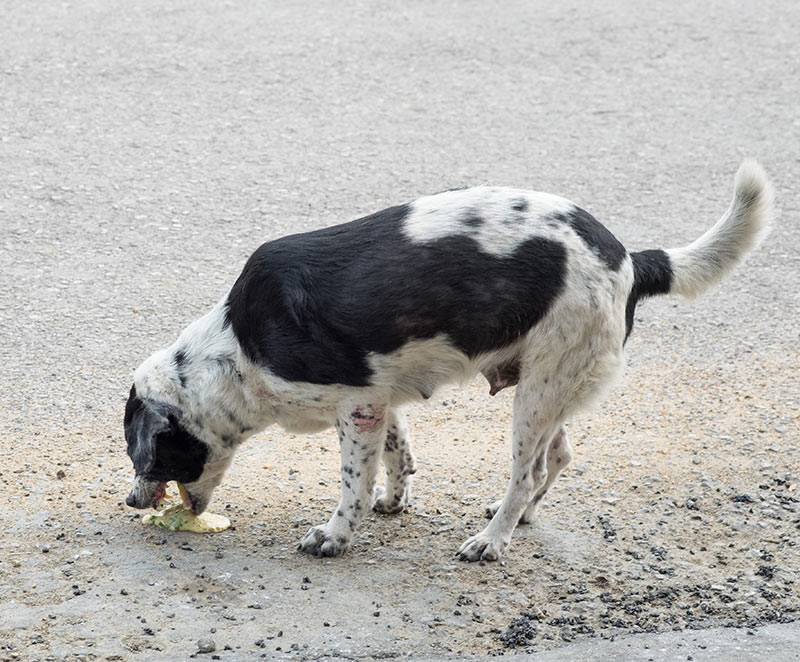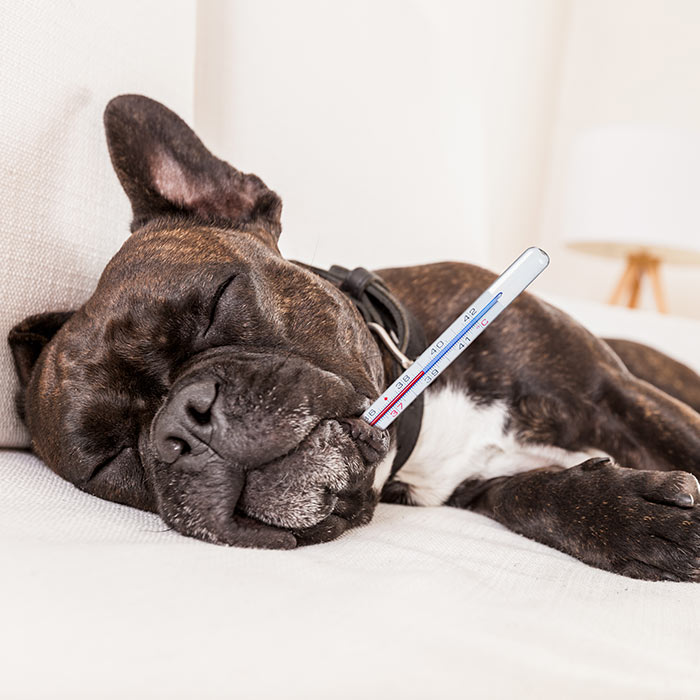Vomiting in dogs and cats
What is vomiting in dogs and cats?
Vomiting is the forceful ejection of the stomach and upper intestine contents that smells sour and contains partially digested foods and yellow bile.
 Puppies have a tendency to vomit more often than older dogs and may suffer from episodes of vomiting. This may be related to all the strange things they tend to ingest or they may have parasites.
Puppies have a tendency to vomit more often than older dogs and may suffer from episodes of vomiting. This may be related to all the strange things they tend to ingest or they may have parasites.
While most dogs or cats will vomit on occasion, as long as they continue to have regular bowel motions then it should not be a major cause for concern. It the vomiting is severe or ongoing then it’s time to consult the vet.
Cost of vomiting treatment for dogs and cats
Vomiting was a common health issue experienced by dogs and cats in 2022, according to PetSure claims data.
Claims data for vomiting |
Average cost of treatment* |
Highest cost of treatment* |
| Dogs | $565 | $26,661 |
| Cats | $636 | $9,464 |
*Based on PetSure claims data, 2022 calendar year. Reimbursement for these claims under a pet insurance policy, would be subject to limits, such as annual benefit limits or sub-limits, benefit percentage, applicable waiting periods and any applicable excess. Cover is subject to the policy terms and conditions. You should consider the relevant Product Disclosure Statement or policy wording available from the relevant provider. Please note that values calculated are based on all claims for that condition and medically related conditions in each calendar year.
Because it is difficult to predict the costs of veterinary care, it can help to have measures in place to help prepare for the unexpected. Pet insurance can help by covering a portion of the eligible vet bill if the unexpected does happen.
Get a quote for 2 months free pet insurance for your puppy or kitten in their first year.
Causes of vomiting in dogs and cats
Dogs and cats vomit for a wide variety of reasons. Sometimes they may have eaten something that didn’t agree with them or they may have eaten too fast. In other circumstances the animal may have ingested a toxic substance or may require immediate treatment.

Vomiting may also be disease-related and associated with illnesses like inflammatory bowel disease, paralysis tick, gastro-intestinal parasitism, liver disease, kidney disease, cardiac disease or diabetes.
Symptoms of vomiting in dogs and cats
Usually you will notice that your pet is about to vomit because they may wander around, then stop, become rigid and make a retching noise. You might see your pet’s stomach area contracting and expanding and their throat straining. The dog or cat will then usually vomit, sometimes more than once.

There are a number of symptoms that indicate you should take your pet to the vet. These include:
- Vomiting that won’t stop even though the dog or cat has nothing left in their stomach, and/or they are vomiting yellow bile.
- The animal is showing signs they are in pain or distress and that includes heavy panting.
- The animal appears particularly weak or lethargic.
- They have blood in their vomit or stool.
- There is the possiblity of them becoming dehydrated due to excessive vomiting.
Unsure how serious it is?
Bow Wow Meow policyholders can get access to trusted vet care anytime, anywhere, at no additional cost. Connect to an experienced Australian registered vet via video call, 24/7. Whether it’s providing vet advice, setting up at-home treatment plans, or confirming if you need to visit a vet in person, you can get help when you need it.
Find out more about our pet insurance cover options.
Diagnosis of vomiting in dogs and cats
If things appear serious then a trip to the vet will usually result in a physical examination to determine the possible causes of the vomiting.
The vet will check to determine whether there is abdominal pain and they will also take your pets temperature to determine whether it is high. They will also check for abnormal masses in the abdomen.
The vet may check your pet’s mouth just in case there is a foreign object like string extending into the stomach or small intestine.
A blood test and/or x-ray or ultrasound may also be required to determine the cause of the problem. There are a number of diseases where vomiting is related on underlying issue and these include pancreatitis, kidney failure, a uterine infection, Addison’s disease and thyroid problems.
Treatment of vomiting in dogs and cats
There are a number of steps that you can take to help your dog or cat recover and make them more comfortable.
- Your vet may advise you to withhold food for a few hours and after that time introduce bland food back into your dog or cat’s diet. Introduced foods could include rice, skinless chicken or boiled potatoes.
- You should also make sure that water is freely available to ensure that the animal does not become dehydrated. Signs of dehydration include dry gums and mouth, sunken eyes and tented skin.
- Once things settle down a bit you can gradually increase the amount of bland food that you are feeding your pet until they are on the road to recovery, this can be up to several days.
Prevention of vomiting in dogs and cats
- Make sure that you don’t introduce new foods too quickly as this can cause upset stomachs.
- It’s best not to suddenly change the diet of your dog or cat as the new food may not agree with them. Gradually introduce new foods to their diet.
- Puppies and particular but also older dogs will occasionally decide to eat something that really isn’t meant for dog consumption. Puppies have been known to eat string, socks, toys and other items that cause gastric or intestinal problems.
- Occasionally dogs will do what dogs do and raid the garbage bin if given the opportunity. If your dog eats something that’s rotten out of the garbage they may become ill. It’s best to make sure if you are going to leave your dog in the house that they aren’t able to access kitchen scraps and rubbish.
- It’s wise to keep an eye on your dog if you are feeding them bones as some bones may not digest and cause intestinal issues.

Interesting Facts
- More often than not, vomiting is a reaction to a minor stomach upset.
- Vomiting is not the same as regurgitation, which is the relatively effortless ejection of undigested food from the oesophagus.
- There are a number of theories related to why some dogs eat their own vomit. One relates to the fact that they were once pack animals so wolfed down the food and then went somewhere quiet and regurgitated the food to eat it in peace and security.
- It is not uncommon for dogs and cats to suffer from motion sickness, which can make car journeys very unpleasant for all involved. Your veterinarian can prescribe medication for to prevent motion sickness.
Bow Wow Meow Pet Insurance can help protect you and your pet should an unexpected trip to the vet occur.
-
Find out more about our dog insurance options
-
Find out more about our cat insurance options
-
Get an instant online pet insurance quote











